Report triggers
Report triggers are used to adjust the report based on certain conditions. For reports based on a project with subjects or Primary/Secondary Subject pairings, Primary Subject Field conditions and Secondary Subject field conditions may be applied to the trigger.
Two elements are configured when setting up a trigger.
- Condition - The condition defines the cause.
- Action - The action specifies the effect on the report form. Hidden report blocks can be displayed and vice versa.
The following table shows which demographic fields can be used in a report trigger for different reports:
Report trigger matrix
| Project type | Report type | ||
|---|---|---|---|
| Rollover | Individual | Group by | |
| No breakdown | Breakdown by secondary subject | ||
| Survey | N/A | N/A | N/A |
| Subject Only | N/A | Subject Fields Only | |
| Primary/Secondary Subject Pairing | N/A | Subject Fields Only | Subject and Secondary Subject Fields |
| Multiple Secondary Pairing | N/A | Subject Fields Only | Subject and Secondary Subject Fields |
Response threshold trigger condition
The response threshold trigger condition allows you to set the number of responses a particular question receives before the trigger is activated. The response threshold can be based on individual rater groups if more than one rater group exists. This means that there must be a certain number of responses by a particular rater group for that question in order to activate the trigger. By default the response threshold is based off of the total responses from all groups combined.
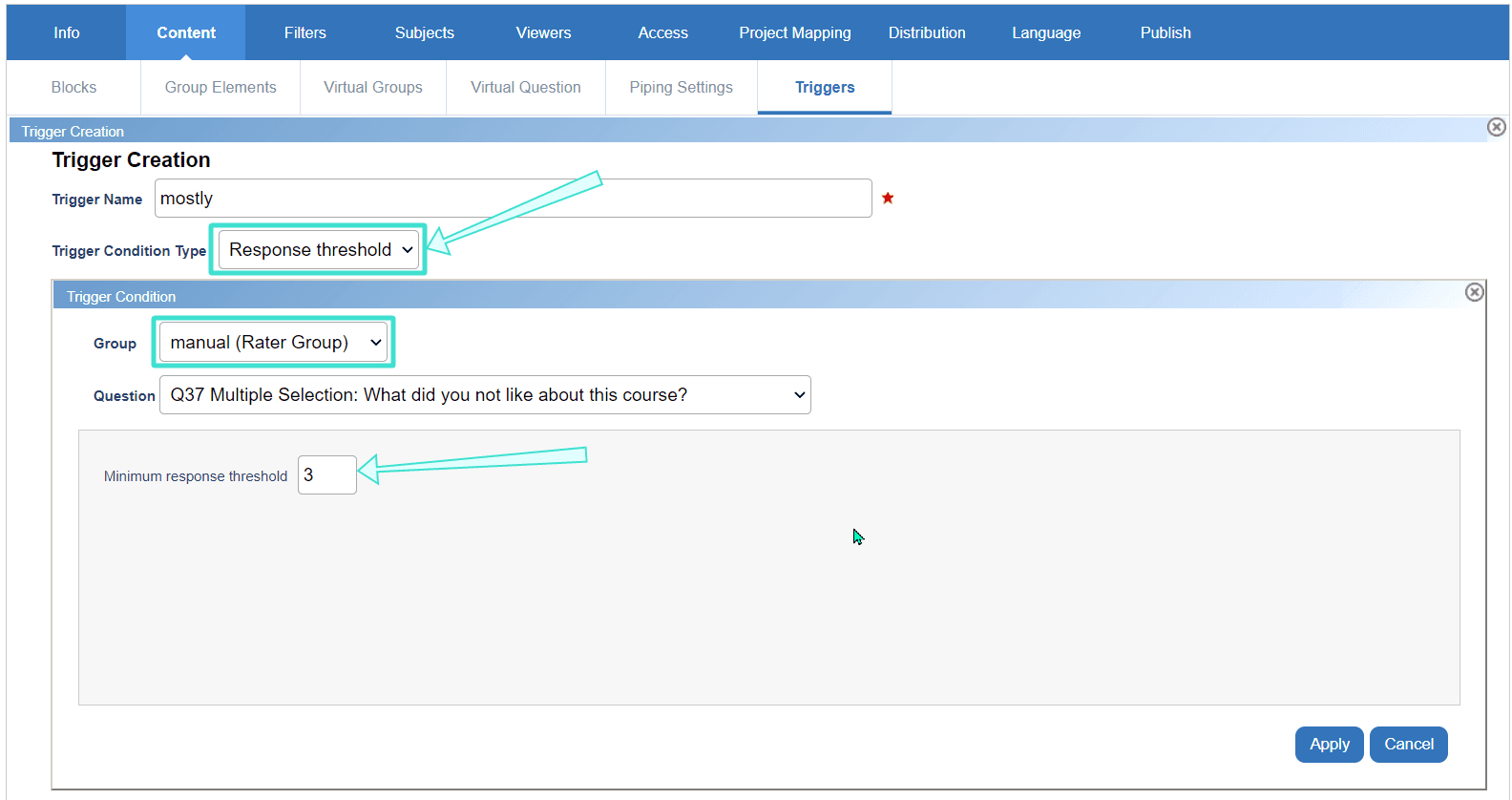
Each trigger is associated with an action. In the event that a threshold trigger becomes activated the response data for that question can be excluded from the report or included in the report.
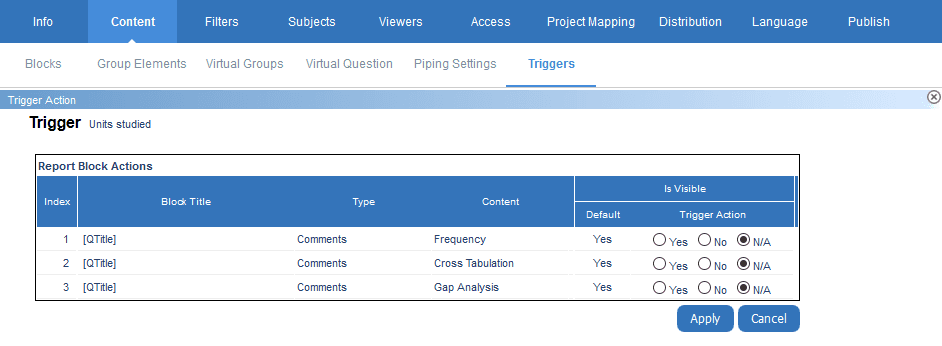
Logical Operators
For date and number fields, the available operators are:
- Greater than
- Greater than or equal to
- Equal to
- Less than
- Less than or equal to
- Not equal to
For text-based fields, the operators available include:
- Begins with
- Does not begin with
- Ends with
- Does not end with
- Contains
- Does not contain
- Is
- Is not
- Is empty
- Is not empty
The Operand
Enter the logical operator for the response pattern you are seeking.
Click Apply Filter. The condition has been added to this trigger.
To remove one trigger condition, select the condition to remove and click Delete, or click the Delete All button to clear the entire trigger condition listing.
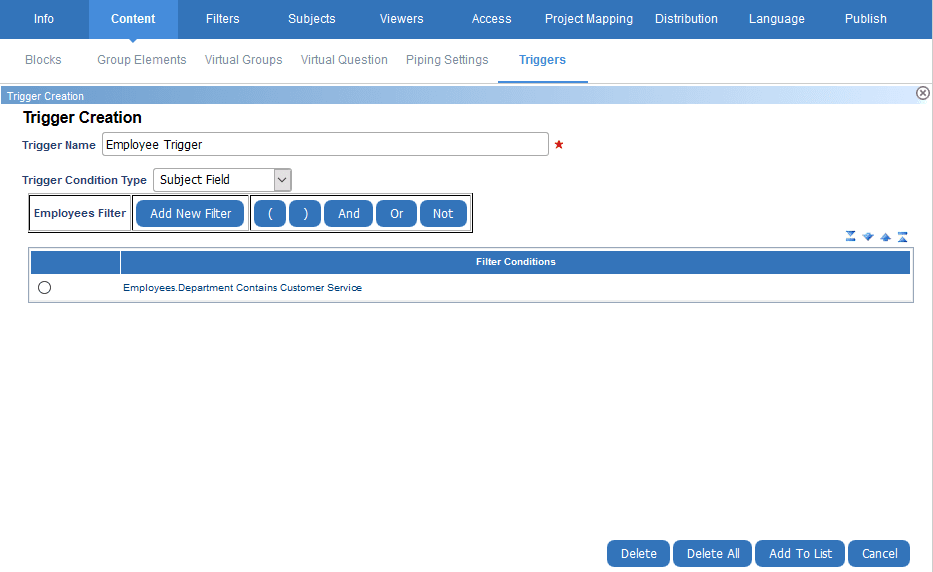
Trigger conditions are built logically. Multiple filters can be defined together for a given datasource using the Boolean logic commands AND, OR, and NOT. In addition, it is also possible to nest multiple conditions using the parenthesis. Repeat adding as many conditions as necessary, there is no limit to the number of filters that can be added.
When adding more than one Trigger Condition, or nesting several conditions, the AND/OR/NOT logical commands must be inserted in the filter condition listing. Click on the respective button to insert any one of the logical operators. Use the open and close parentheses ( ) buttons to create the desired logic. Begin a condition set with the Not command to reverse the logic of the operation.
The search can be narrowed by specific keywords and fragments, and up to three search filters can be nested for greater accuracy in determining your desired condition.
Once all of the conditions have been set, select Add to List. The trigger is now a part of the Trigger List.
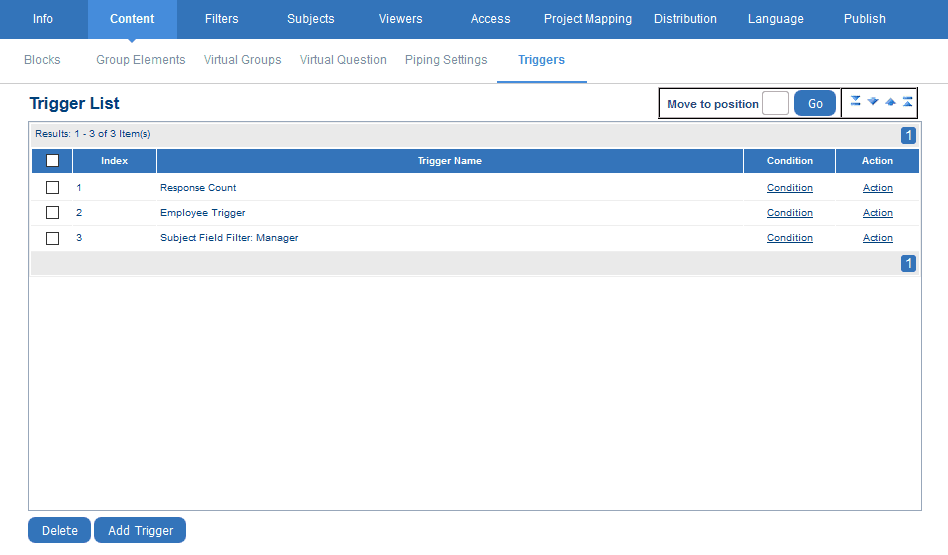
Editing the trigger condition
To edit the trigger condition, click on the Condition link.
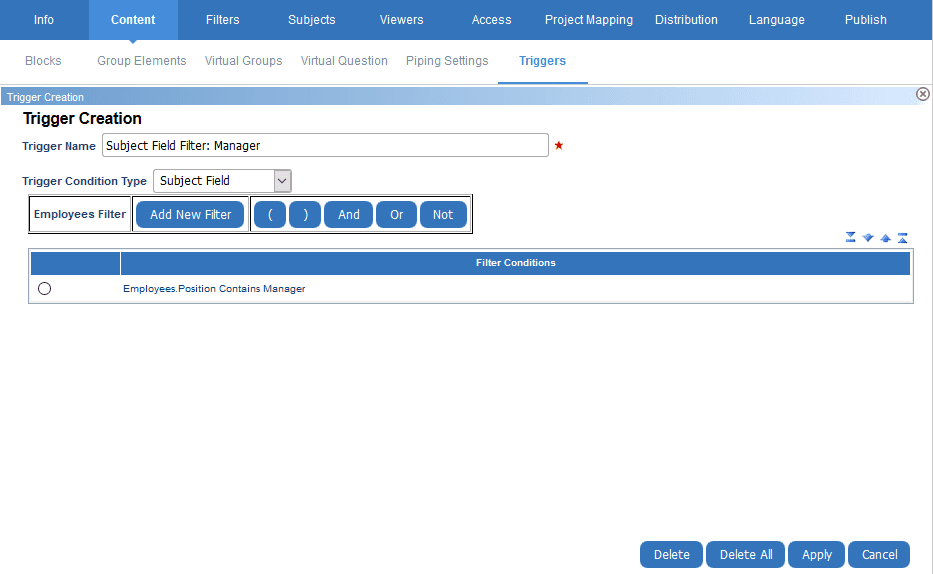
Adding the action
Once the conditions are set, select Action to determine exactly what effect the condition will have on the report blocks. The Trigger Action window will appear.
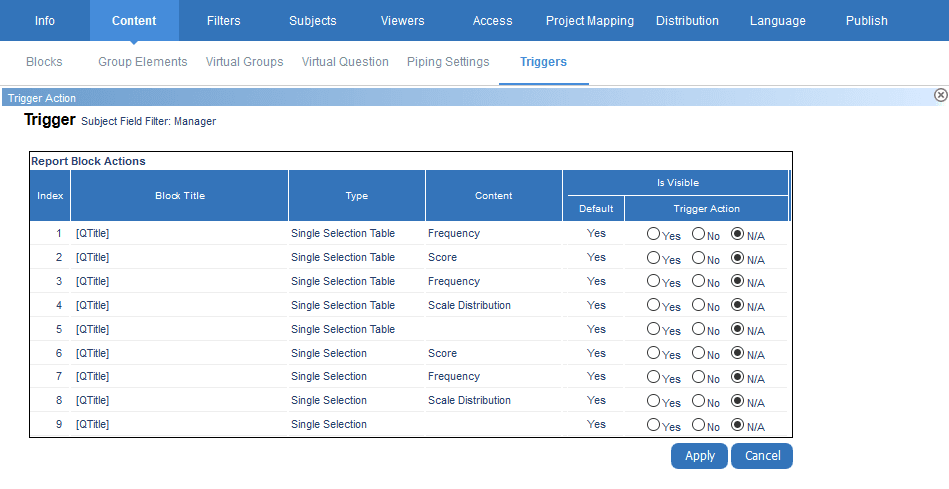
Report blocks are displayed along with their default visible/hidden statuses. For each report block, select the appropriate behavior to carry out for the trigger.
Is Visible Action
For each report block, determine if the trigger will display or hide the report block. The default behavior is displayed in the Default column.
- Is Visible = Yes: To display the question, select the Yes option. By default, this option is selected for each report block.
- Is Visible = No: To hide the question, select the No option.
- Is Visible = N/A: The trigger has no impact on the report block.
The default option of Visible/Not Visible can be changed when you first create a report block, by checking or unchecking the “Hidden by Default” box.
If “Hide Report Blocks with No Results” has been selected, in Reports - Info - Content, this setting will override your selection in the Trigger Action window. Therefore, even if your setting in the Trigger Action window is “Visible,” a report block with no results will not be displayed.
Click Apply to confirm these Trigger Actions.
Managing the trigger listing
When multiple triggers are listed, the trigger with the highest index number takes priority over other triggers. What this means is that if there is a conflict, and two triggers have the same trigger condition, the action belonging to the trigger with the highest index number will take precedent.
